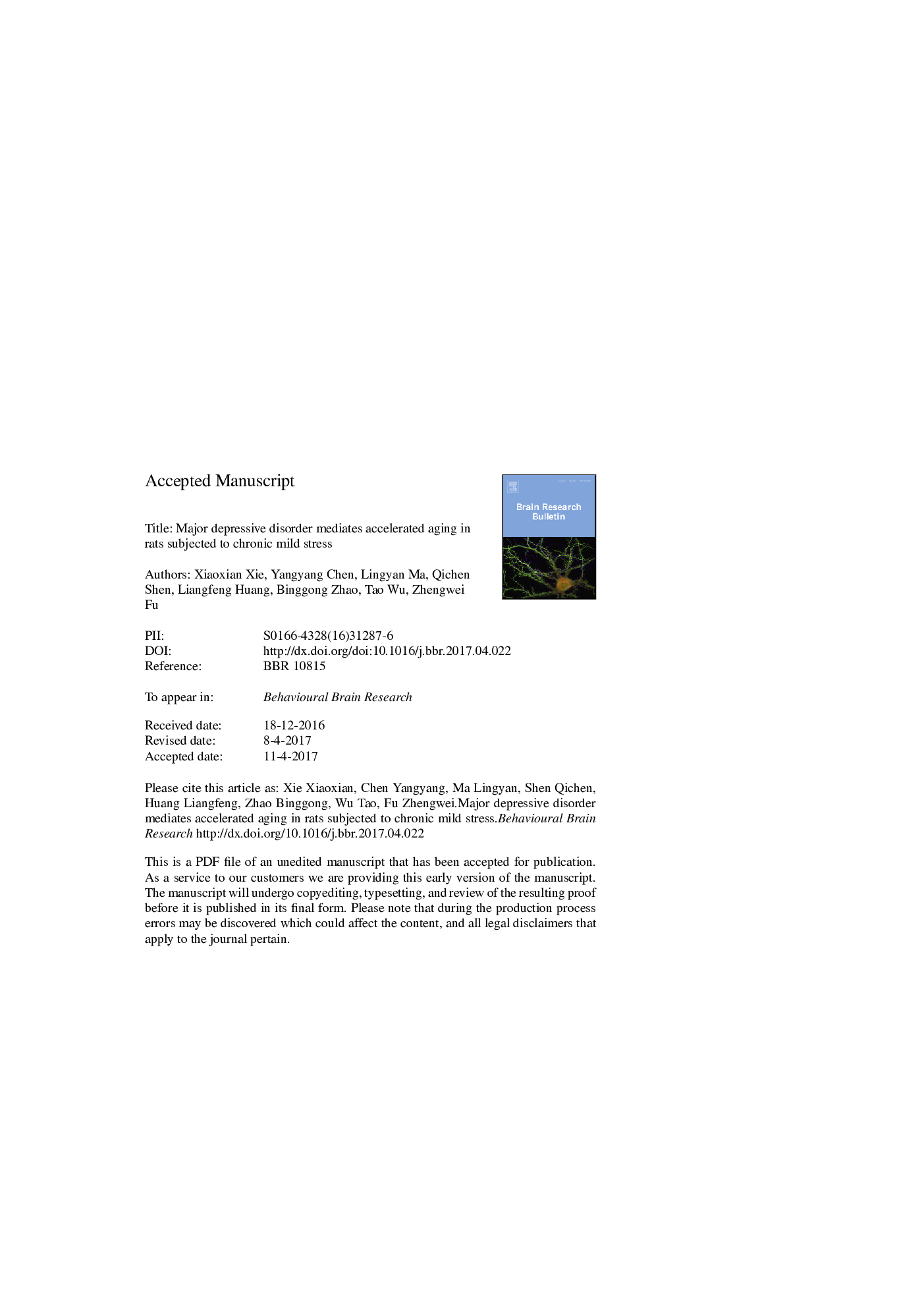| Article ID | Journal | Published Year | Pages | File Type |
|---|---|---|---|---|
| 5735437 | Behavioural Brain Research | 2017 | 32 Pages |
Abstract
Major depressive disorder (MDD) has a complex etiology and is characterized by a change in mood and psychophysiological state. MDD has been shown to mediate accelerated biological aging in patients, although the underlying mechanism is not well understood. In the present study, we used a chronic mild stress (CMS) paradigm to induce anhedonia, one of the main symptoms of MDD. CMS induced depression-like symptoms in rats, including reduced sucrose preference and increased immobility time in the forced swim test. Moreover, stressed rats travelled a shorter total distance, had fewer grid line crossings, and spent less time in the outer zone in the open field test than controls. CMS altered the levels of 5-hydroxytryptophan, dopamine, and corticosterone in the serum and hippocampus (PÂ <Â 0.05); these rats also exhibited impaired liver function, decreased telomerase activity, and telomere shortening, which was associated with increased oxidative damage along with decreased superoxide dismutase and glutathione reductase activities. Mitochondria in CMS-treated rats showed ultrastructural damage as well as reduced DNA content and integrity. These findings provide physiological and cellular evidence that the MDD can mediate accelerated aging in rats.
Keywords
Related Topics
Life Sciences
Neuroscience
Behavioral Neuroscience
Authors
Xiaoxian Xie, Yangyang Chen, Lingyan Ma, Qichen Shen, Liangfeng Huang, Binggong Zhao, Tao Wu, Zhengwei Fu,
